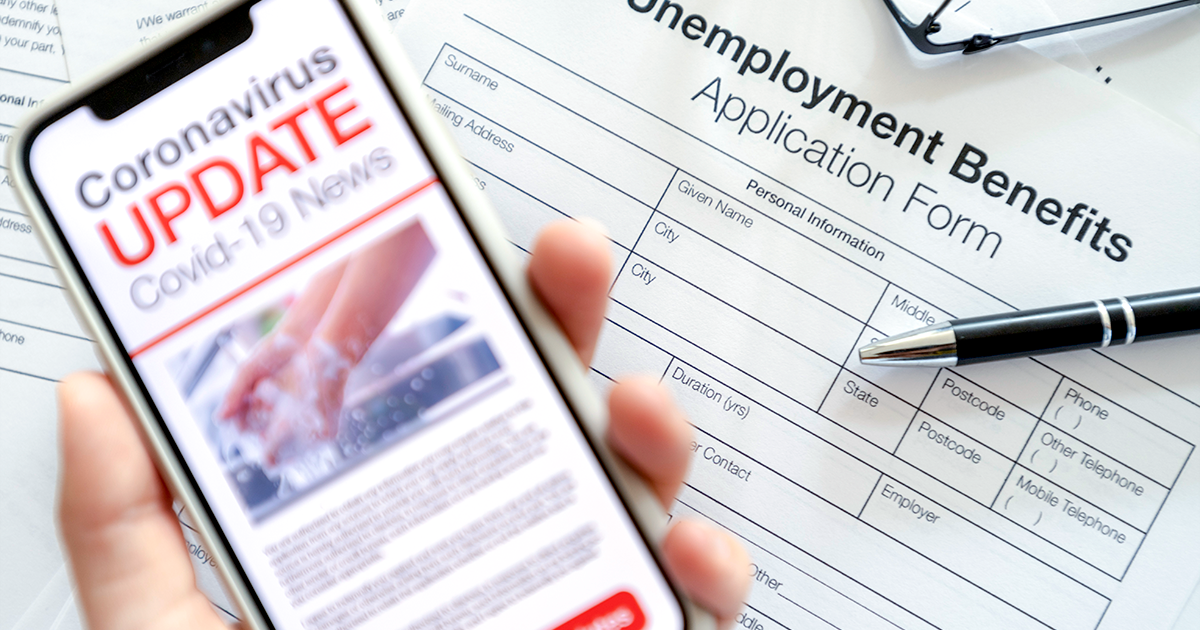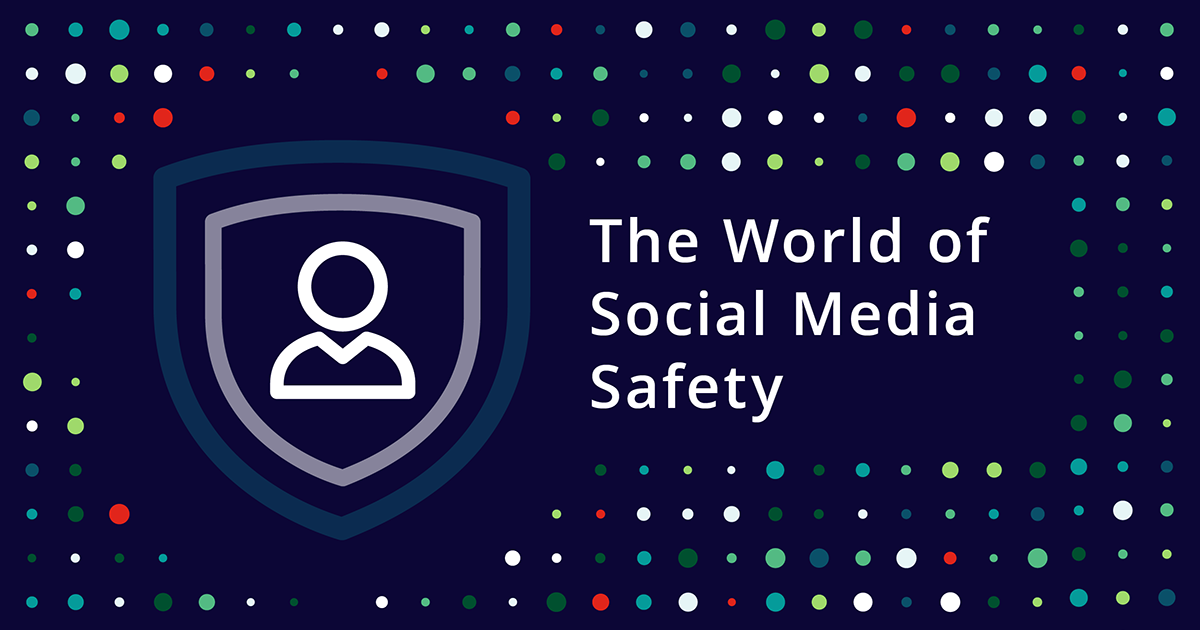
Are You a Victim of Unemployment Fraud? 4 Simple Steps to Recover
Let’s face it—pandemic life has been really hard. Navigating information that seems to be constantly changing while just trying to stay afloat financially has put a huge strain on everyday life. Maybe your work situation is not looking so great and you’re considering applying for unemployment benefits. The last thing you need is to find out that some random person already received those benefits under your name. Seriously not cool. And yet in states like Colorado, 25 – 50% of unemployment claims are doing just that.1
What is unemployment fraud?
Unemployment fraud occurs when someone uses another person’s sensitive information, like Social Security numbers and dates of birth, to submit an unemployment benefits claim. Then the scammer receives those funds on behalf of the person they’re impersonating.
So how exactly have these criminal masterminds worked their evil magic? Fraudsters have been using the following techniques to trick their victims out of their sensitive information:
- Posing as helpful resources to file unemployment claims, usually for a fee
- Offering a “faster” unemployment application or a mobile app
- Claiming the victim has won a cash prize or contest2
When did this become a big deal?
The Covid-19 pandemic has seen millions of unemployment claims nationwide.3 And a spike in April 2020, when 22 million Americans filed for unemployment benefits,4 seemed to be the record-breaking moment. It’s not surprising, then, that fraudsters were itching to get their hands on some unsuspecting victims’ cash before anyone got wise.
Government agencies have had an especially difficult time keeping up with the flood of claims since March of last year. Remember March 2020? That was when the $2.2 trillion coronavirus stimulus package gave even more people access to unemployment benefits.4:1 With so many states desperate to get funds to those in need, there just haven’t been enough resources to anticipate such a widespread scheme. “This is a gut punch,” said the commissioner of Washington State’s Employment Security Department, Suzi LeVine, when potential benefits losses from these scams reached hundreds of millions of dollars.5
How do I know if I’m a victim of unemployment fraud?
You may not know right away whether or not you’ve been affected by unemployment fraud. However, most people know something’s not quite right when:
- They receive an IRS Form 1099-G for unemployment funds they were supposedly awarded.
- Either they or their employer receive a letter from the Department of Labor (or state employment agency) asking to verify personal information on a claim.6
- They receive suspicious or unexpected funds into their account.
How do I protect myself from unemployment fraud?
Sometimes scammers make mistakes in filing the fraudulent claims or they lack important personal information to complete the claims. Ignore any suspicious phone calls, text messages or emails asking you to:
- Provide personal information such as your Social Security number, date of birth or credit card information
- “Refund” benefits sent to you by mistake, usually through a wire transfer, sending cash or by putting the money on gift cards
- Follow a link or open an attachment from a sender you don’t know
In general, you should always be aware of the best ways to combat identity theft to keep your information safe from any type of scam.
What if I’ve already filed for unemployment benefits?
Scammers will also target individuals who have already filed unemployment claims, so keep a detailed record of when and where you sent your claim and any other official communications you’ve received. That way you’ll know when something associated with your claim looks suspicious.
You’ll also want to keep a close eye on your bank accounts. If you receive benefits you never applied for, report it to your state unemployment agency immediately.
I’m already a victim. What now?
If you know your personal information has been used on a fraudulent unemployment claim, you should take the following steps7 right away:
- Report the fraud to your employer
- Report the fraud to your state unemployment benefits agency. Find yours here.
- Go to IdentityTheft.gov to report the fraud to the Federal Trade Commission and get help recovering your stolen identity. This includes:
- Placing a fraud alert on your credit report.
- Closing any fake accounts opened in your name.
- Reporting irregular transactions to your financial providers.8
- Keep a close eye on your credit reports. You can check them up to once per week for free for the next year at AnnualCreditReports.com.
Make sure you keep really good track of your fraud report history. Knowing exactly who you talk to and when, recording any confirmation or case numbers you receive and keeping hard copies of all the forms you submit will help streamline the process and prevent other suspicious activity from popping up in the process.
How will this affect my tax return?
Now that tax season is upon us, you’re probably wondering how unemployment fraud affects your filing. If you received a 1099-G form for unemployment benefits that you did not receive, the IRS urges you to contact your state unemployment agency and request a corrected form.9 Because of the overwhelming number of fraud cases, however, you may not receive this form before you need to submit your tax return. In that case, you must still submit an accurate tax return, meaning only report benefits that you have received. You can explain in a footnote on your taxes that you received a 1099-G in error.
Continue to follow up with the unemployment agency even after you have filed your tax return to make sure their records have been updated. That way, you won’t get hit with an audit down the road.10 In addition to following the identity theft recovery steps above, you can also request an Identity Protection PIN when filing your federal tax return. This will prevent someone from filing a return using your Social Security number.
For additional questions or concerns, ask a representative at your state unemployment agency.
You will get through this
Having both your sensitive personal information and important benefits stolen from you in a time of crisis is like a one-two punch to gut. But hang in there and remember: keep a solid paper trail for yourself, stay vigilant in protecting your personal information, and get help from the professionals when you know there’s a problem. We hope the information provided in this article can help you recover quickly and protect yourself from any future attacks.
Sources:
- Nelson, P. (2021, January 11). Colorado’s unemployment fraud issues believed to be widespread and costly. Retrieved from: https://www.koaa.com/news/news5-investigates/colorados-unemployment-fraud-issues-believed-to-be-widespread-and-costly.
- Pennsylvania Office of Unemployment Compensation. (n.d) Unemployment Compensation Fraud. Retrieved from: https://www.uc.pa.gov/Fraud/Pages/default.aspx.
- Bureau of Labor Statistics. (2021, January 8). The Employment Situation – December 2020. Retrieved from: https://www.bls.gov/news.release/pdf/empsit.pdf.
- Iacurci, G. (2020, April 16). Scammers are defrauding unemployed Americans. Retrieved from CNBC: https://www.cnbc.com/2020/04/16/scammers-are-defrauding-unemployed-americans.html.
- Baker, M. (2020, May 22). Feds Suspect Vast Fraud Network Is Targeting U.S. Unemployment Systems. Retrieved from The New York Times: https://www.nytimes.com/2020/05/16/us/coronavirus-unemployment-fraud-secret-service-washington.html.
- First Republic Bank (2020, September 11). Guard Against Unemployment Scams. Retrieved from: https://www.firstrepublic.com/articles-insights/life-money/protect-against-fraud/guard-against-unemployment-scams.
- Gressin, S. (2020, June 3). Is a scammer getting unemployment benefits in your name? Retrieved from The Federal Trade Commission: https://www.consumer.ftc.gov/blog/2020/06/scammer-getting-unemployment-benefits-your-name.
- Kansas Department of Labor (n.d.) Unemployment Claim Fraud Due to Identity Theft Is On the Rise. Retrieved from: https://www.dol.ks.gov/fraud.
- IRS. (January 28, 2021). IRS offers guidance to taxpayers on identity theft involving unemployment benefits. Retrieved from: https://www.irs.gov/newsroom/irs-offers-guidance-to-taxpayers-on-identity-theft-involving-unemployment-benefits.
- Iacurci, G. (February 9, 2021). Unemployment fraud may create a tax nightmare. Retrieved from: https://www.cnbc.com/2021/02/09/unemployment-fraud-may-create-a-nightmare-for-people-this-tax-season.html.



